
Elderberries are celebrated for their powerful health benefits, particularly for boosting the immune system and supporting heart health. With a rich history of medicinal use spanning centuries, elderberries have gained popularity as a natural remedy for various health issues. Should you consider using elderberries to enhance your health? Let’s explore the scientific evidence.
The Benefits of Elderberry
Elderberries offer numerous potential health benefits. While human studies are limited, their potential advantages are well-recognized. Here are the most notable ones:
1. Nutrient-Dense
Elderberries are not only tasty but also packed with essential nutrients. These small berries are rich in vitamin C, fiber, phenolic acids, and anthocyanins, which contribute to their strong antioxidant properties. Like other berries, they are low in calories, high in fiber, and provide a nutritional boost that supports overall health and well-being.
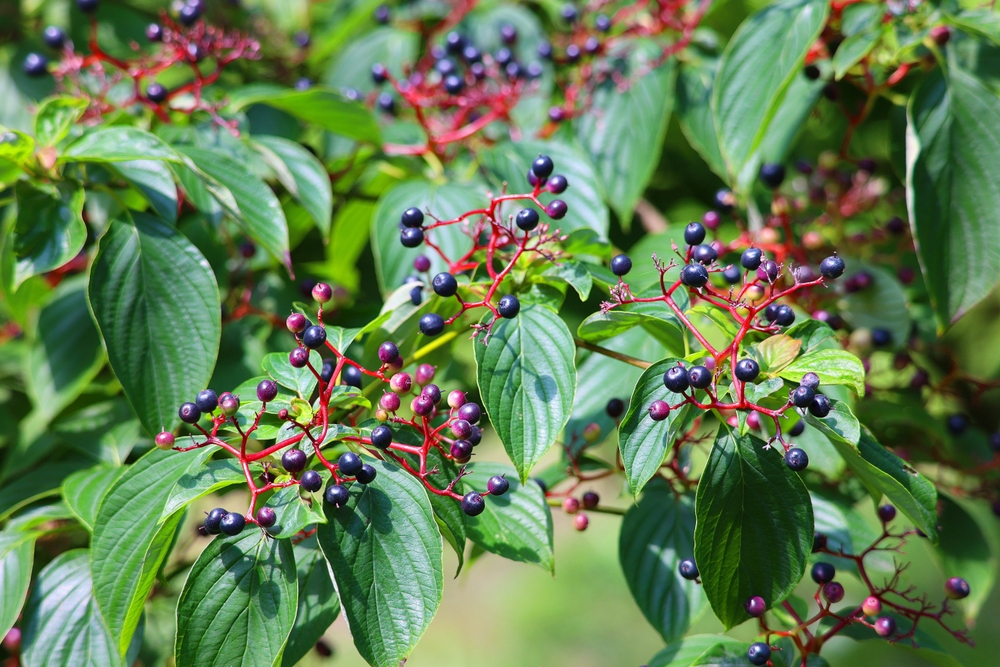
2. Antioxidants
The high antioxidant content in elderberries makes them effective in fighting oxidative stress and free radical damage in the body. Oxidative stress is linked to various diseases, including cancer. The anthocyanins, flavonols, and other antioxidants in elderberries help reduce inflammation, lower the risk of chronic diseases, and promote cellular health. Studies confirm that elderberries exhibit impressive antioxidant activity, making them a valuable addition to a healthy diet.
3. May Help with Cold and Flu
Traditionally, elderberries have been used to ease cold and flu symptoms. Research indicates that compounds in elderberries can reduce the severity and duration of influenza infections. Commercial elderberry products, such as syrups and capsules, have shown promise in alleviating symptoms and aiding recovery from respiratory illnesses.
4. Potentially Good for Heart Health
Elderberries may benefit heart health by lowering blood fat levels and cholesterol. The flavonoids, like anthocyanins, present in elderberries support cardiovascular health and reduce the risk of heart disease. Including elderberries in your diet can promote a healthy circulatory system and overall heart wellness.
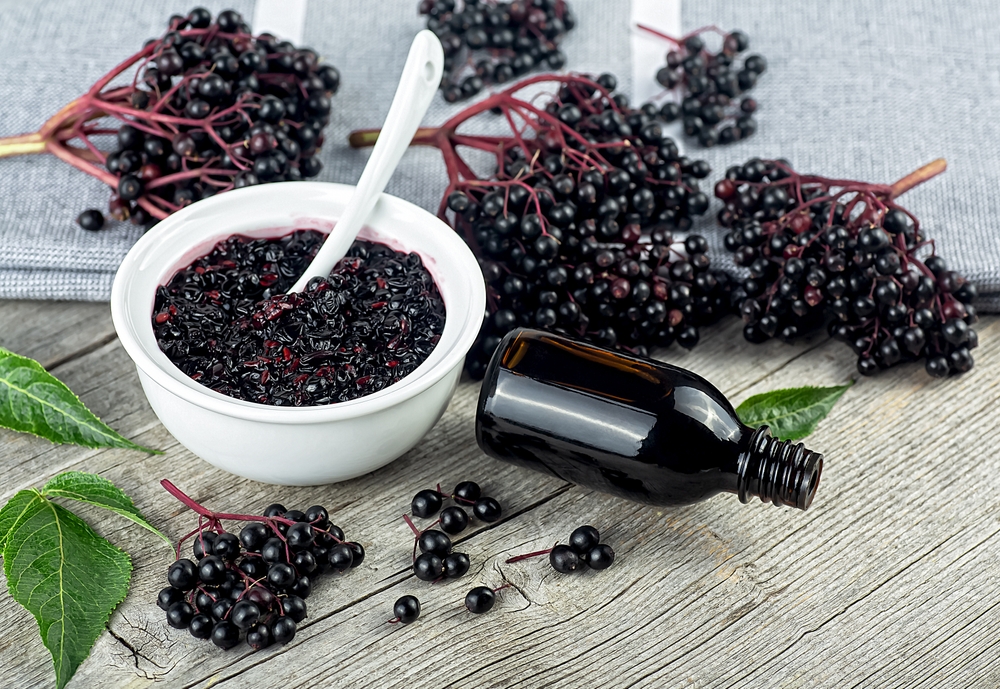
5. Fights Harmful Bacteria
Elderberries have natural antimicrobial properties that help combat harmful bacteria and infections. The bioactive compounds in elderberries inhibit pathogen growth and strengthen the immune system. Regular consumption may protect against bacterial infections and support a healthy microbial balance in the body.
6. Helps Fight Cancer
Some evidence suggests elderberries possess anti-cancer properties, including the ability to inhibit tumor growth and protect against DNA damage. The rich antioxidants in elderberries help reduce oxidative stress and inflammation, both linked to cancer development. Incorporating elderberries into a cancer-preventive diet may provide additional support in cancer treatment and prevention.
7. Could Protect Against UV Rays
The antioxidants in elderberries offer protection against UV-induced skin damage. By reducing oxidative stress and inflammation from sun exposure, elderberries may help protect the skin from harmful UV rays, minimizing aging and sunburn risks. Adding elderberries to your skincare routine or diet can offer extra defense against environmental stressors.
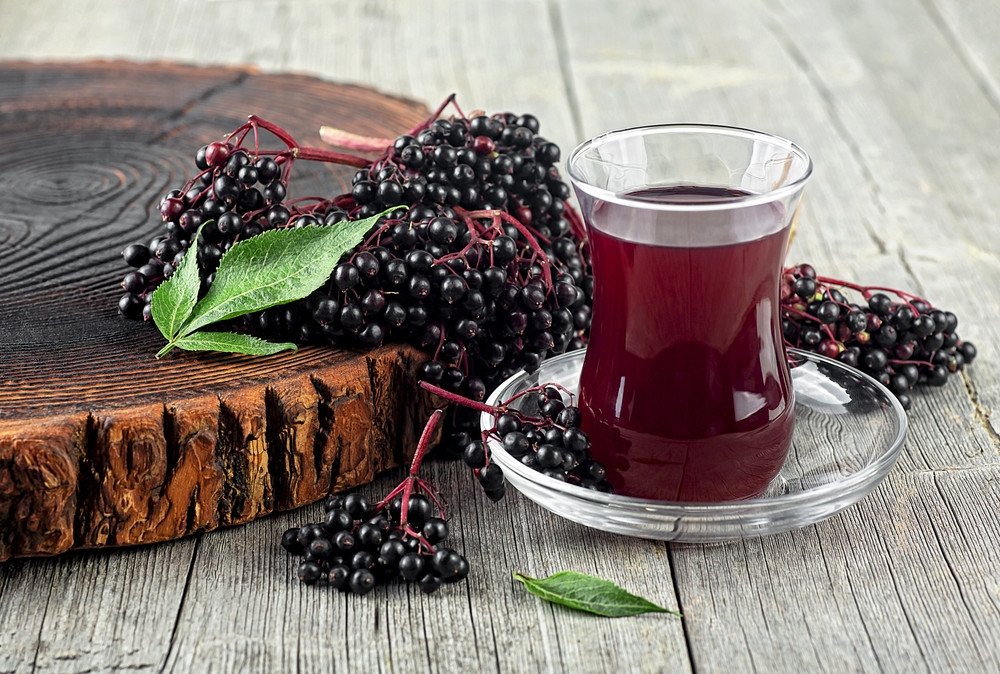
8. Potential Immune System Support
Elderberries are well-known for boosting the immune system, making them a popular choice during cold and flu seasons. Their high vitamin C content and variety of antioxidants work together to enhance immune function and combat infections. Regular consumption may strengthen immunity and lower the risk of illness.
9. May Help with Depression
Emerging research suggests elderberries might have mood-enhancing effects and support mental health. Their anti-inflammatory and antioxidant properties can reduce brain oxidative stress and support neurotransmitter balance. Including elderberries in your diet may offer natural support for managing depression symptoms and promoting emotional well-being.
10. May Increase Urination
Elderberries have diuretic properties, promoting urine production and helping flush toxins from the body. This may improve kidney function, regulate blood pressure, and reduce water retention. Consuming elderberries in moderation can support kidney health and maintain proper fluid balance.
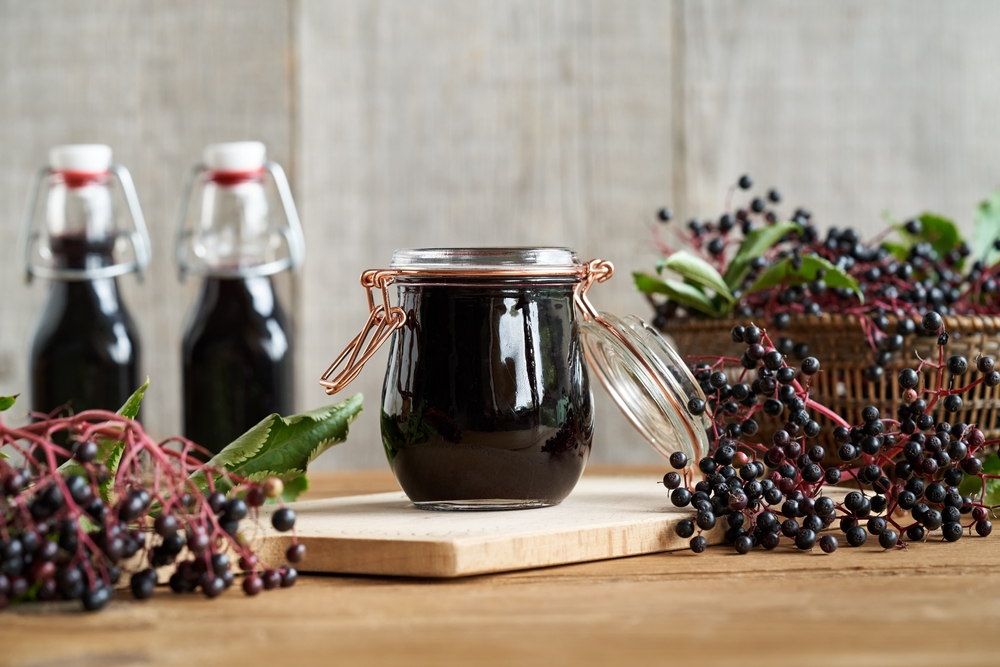
Potential Risks of Elderberry
While elderberries offer many health benefits, it’s important to be aware of potential risks, especially if consumed in large quantities or raw. Raw elderberries and some parts of the plant contain toxic compounds that can cause digestive issues and poisoning. It’s recommended to consume cooked or processed elderberry products from reputable sources to minimize adverse effects.
How to Take Elderberry
Elderberries can be consumed in various forms, including syrups, tinctures, teas, and supplements. Syrup or juice is the most common form, which can be added to drinks, desserts, or taken directly. Choose elderberry products from reputable suppliers and free from harmful additives. As with any supplement, consult with a healthcare provider before incorporating elderberry into your routine, particularly if you have underlying health conditions or are pregnant.
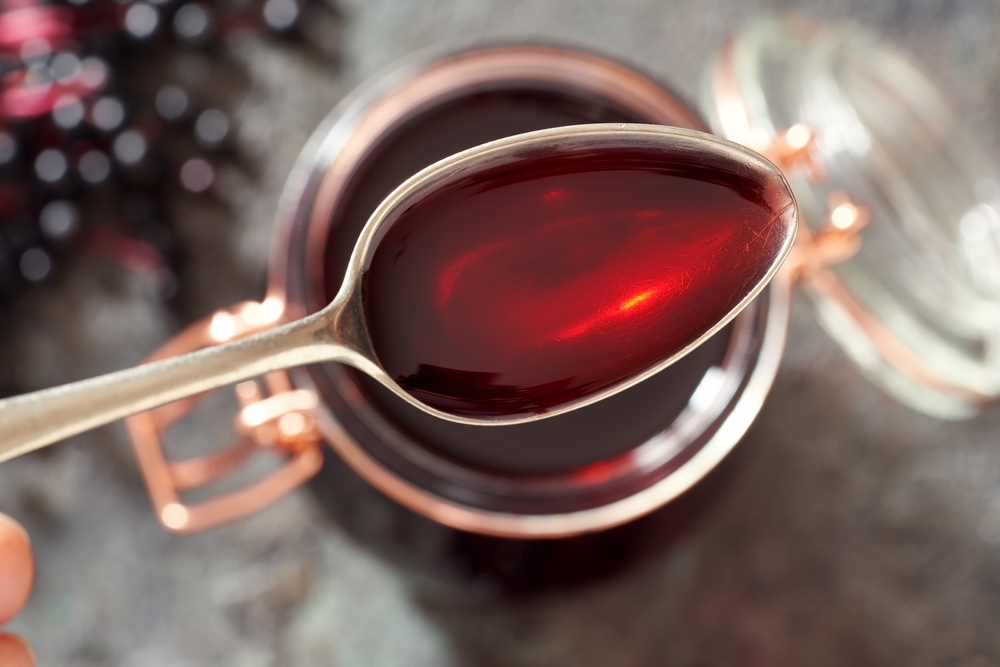
The Bottom Line
Elderberries are a versatile and beneficial natural remedy with numerous health-enhancing properties. From boosting the immune system to supporting heart health and fighting cancer, elderberries offer a holistic approach to wellness. By including elderberries in your diet in safe, controlled amounts, you can harness the benefits of this ancient medicinal fruit to promote overall health and vitality.







